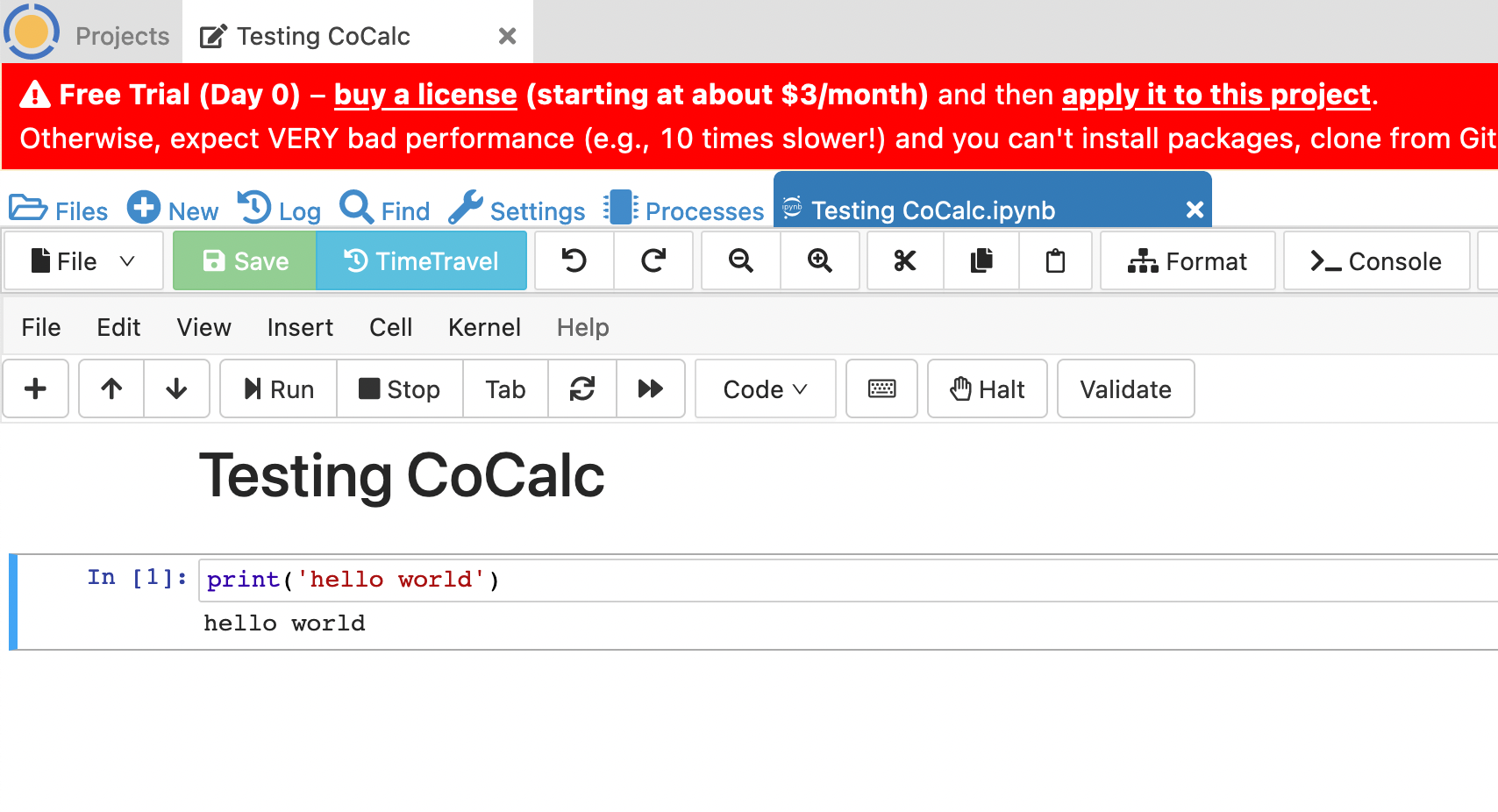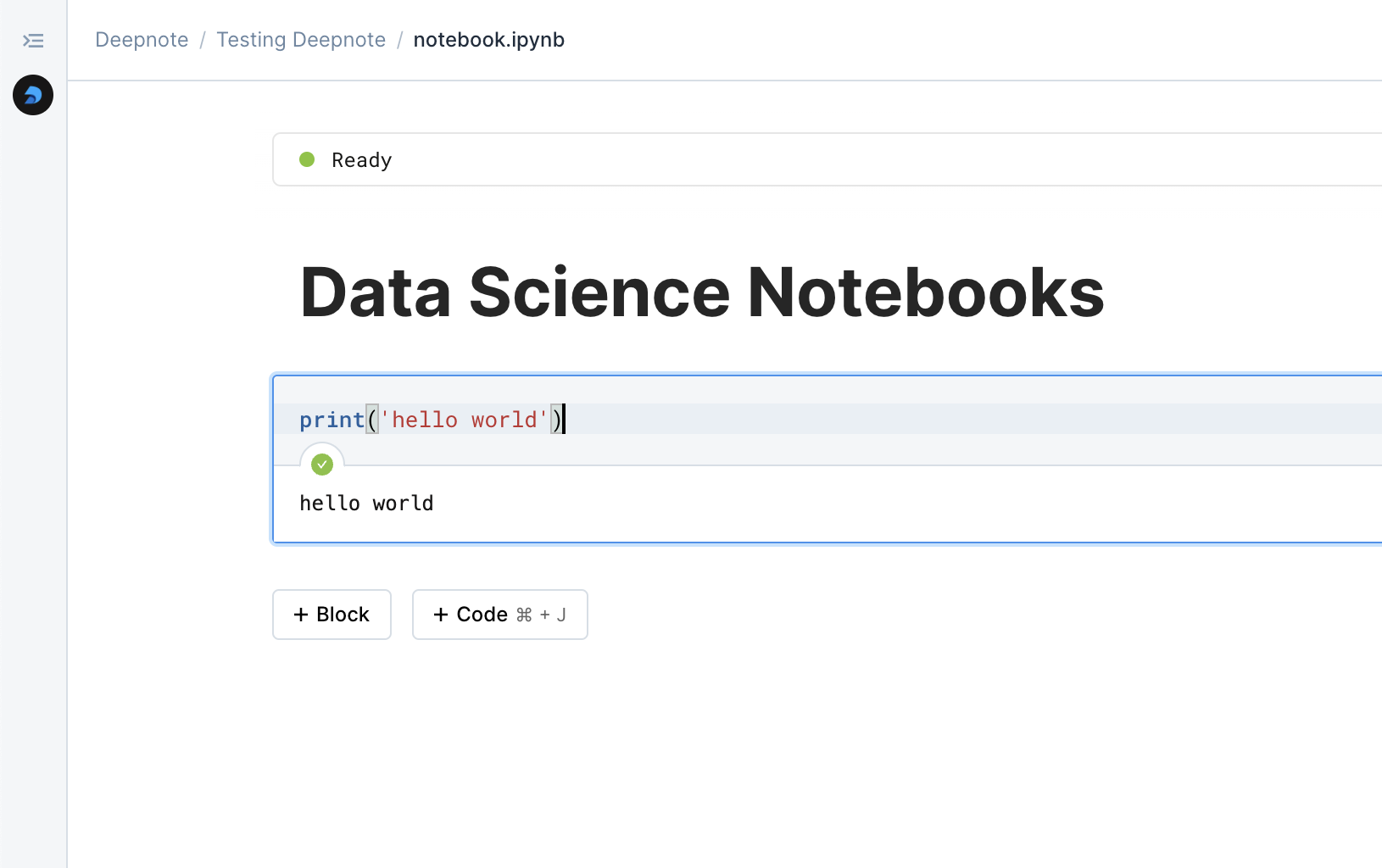

CoCalc

Comparing two data science notebooks.






In the rapidly evolving landscape of cloud-based computational environments, CoCalc and Deepnote represent two distinct philosophies in scientific computing and data analysis. While both platforms aim to empower users with powerful computational tools, their approaches and target audiences differ significantly, reflecting the diverse needs of modern computational work.
CoCalc, originally known as SageMathCloud, emerged from the academic world with a strong focus on mathematical computing and educational needs. Its DNA is deeply rooted in the mathematical sciences, offering an environment that speaks directly to researchers, educators, and students in quantitative fields. The platform maintains its academic heritage while evolving to meet contemporary computing needs.
Deepnote, in contrast, represents the modern wave of data science platforms, built from the ground up to address the needs of professional teams and contemporary data workflows. It embraces current development practices while maintaining accessibility for users across different technical backgrounds.
Working in CoCalc feels like stepping into a well-equipped mathematical laboratory. The platform seamlessly integrates LaTeX editing, symbolic mathematics, and computational notebooks in a way that feels natural to academic users. Its interface, while perhaps not as polished as newer platforms, provides deep functionality that mathematical practitioners appreciate. The built-in course management features make it particularly valuable for educators, allowing them to oversee student work and provide feedback efficiently.
Deepnote offers a more streamlined, modern experience that will feel familiar to professionals coming from contemporary development environments. The platform's interface emphasizes clarity and collaboration, with AI-assisted coding features that help accelerate development workflows. Its environment management and version control systems reflect current best practices in software development and data science.
The platforms' approaches to data connectivity highlight their different focuses. CoCalc primarily handles data through local file operations and basic imports, reflecting its origins in mathematical computing where the emphasis is often on algorithmic complexity rather than data volume.
Deepnote takes a more comprehensive approach to data integration, recognizing the modern reality of distributed data sources. The platform seamlessly connects with major data warehouses, databases, and cloud storage solutions, making it particularly valuable for organizations working with diverse data sources. This integration-first approach reflects the platform's understanding of contemporary data workflows.
Both platforms support collaboration, but their implementations reflect their target users' needs. CoCalc's collaborative features center around academic workflows, with tools specifically designed for teaching and research. The platform's time-travel version control and synchronized editing capabilities support academic collaboration while maintaining the integrity of mathematical work.
Deepnote approaches collaboration through the lens of professional team workflows. Its real-time collaboration features feel more akin to modern document collaboration tools, with sophisticated permission systems and team management capabilities. The platform's comment and review systems facilitate professional feedback loops, while its version control integration supports enterprise-grade development practices.
CoCalc shines brightest in educational settings. Its course management tools allow instructors to distribute assignments, track student progress, and provide feedback efficiently. The platform's strong support for mathematical notation and symbolic computation makes it particularly valuable for teaching quantitative subjects.
Deepnote's strengths lie in professional data science workflows. The platform's support for custom computing environments, scheduled executions, and extensive integrations makes it ideal for teams working on production-grade data science projects. Its AI-assisted features help accelerate development while maintaining professional standards.
The decision between CoCalc and Deepnote should be guided by your primary use case and organizational context. CoCalc remains the superior choice for academic institutions, particularly those focusing on mathematics and computational sciences. Its specialized tools for teaching and research, combined with its strong support for mathematical computing, make it invaluable in educational settings.
Deepnote proves more suitable for professional teams and organizations working with data-intensive projects. Its modern interface, extensive integrations, and collaboration features align well with contemporary business needs. The platform's emphasis on seamless data connectivity and team collaboration makes it particularly valuable for organizations building data-driven solutions.
Both platforms continue to evolve, with CoCalc maintaining its strong academic focus while incorporating modern features, and Deepnote expanding its capabilities while maintaining its user-friendly approach. The choice between them ultimately reflects a broader decision about your computational needs and workflow preferences.
For those in academia, especially in mathematical sciences, CoCalc offers a specialized environment that directly addresses their needs. For professional teams requiring a modern, collaborative data science platform, Deepnote provides a more appropriate solution with its contemporary features and integrations.
The future of cloud computing platforms will likely see continued specialization, with platforms like CoCalc and Deepnote serving their distinct audiences while incorporating new technologies and capabilities. Understanding these distinctions helps ensure you choose the platform that best aligns with your specific needs and objectives.